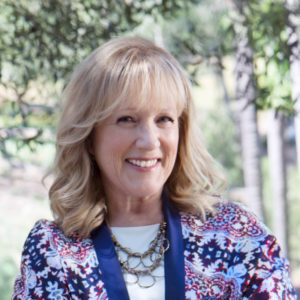 For more than a decade, I was a global advocate for people living with HIV/AIDS. Sadly, I grew accustomed to people whispering in my ear, “I’m HIV positive.” They didn’t say it aloud because the stigma was deep and profound. Unfortunately, shame and stigma are just as real in the world of mental illness. When I became an advocate for suicide prevention and for people living with mental illness, I was shocked to have people whisper their mental health diagnoses in my ear. This should not be. No one should have to whisper anything about their lives at church.
For more than a decade, I was a global advocate for people living with HIV/AIDS. Sadly, I grew accustomed to people whispering in my ear, “I’m HIV positive.” They didn’t say it aloud because the stigma was deep and profound. Unfortunately, shame and stigma are just as real in the world of mental illness. When I became an advocate for suicide prevention and for people living with mental illness, I was shocked to have people whisper their mental health diagnoses in my ear. This should not be. No one should have to whisper anything about their lives at church.
Twenty five percent of people who find themselves in a mental health crisis call the church before they seek out a mental health professional or their primary care physician, according to research. They go to the church first because it is a trusted source of help in a community. That said, according to a study by Dr. Matt Stanford and David Philpott, 71 percent of the clergy surveyed feel inadequately trained to recognize mental illness.
My husband graduated from seminary with a Master’s Degree in Theology before we started our church 38 years ago. Seminary prepared him to lead a congregation, make hospital visits and preach meaningful sermons, but it did not specifically equip him to help people living with mental illnesses. We thought mental illness was rare and not something we would encounter on any sort of regular basis. We were simply unaware of the high volume of pastoral care calls for help and assistance that involve people who are living with a mental health or substance use challenge.
We quickly realized that to adequately care for the needs of our congregation, we had to honor the biblical mandate to serve the whole person – body, mind and soul. We couldn’t use the excuse that “since mental illness is an illness, we should leave the care and support to mental health professionals.” We had a responsibility to learn the best ways we as a church could bring hope, health and healing to people in our community.
We didn’t do it alone – and neither should you! There are numerous outstanding mental health organizations the church can partner with to educate the staff and church members about mental illness. One organization at the top of our list is Mental Health First Aid. To date, 25 of our staff members, including our pastoral care team, have been trained in Mental Health First Aid. The training increased our compassion, taught us to recognize a mental health crisis, provided practical steps for how to be a first responder and how to link people to the appropriate care and support.
Many of us want to help – we want to change the culture of our faith communities as it relates to mental illness. And the good news is we can! When we talk openly about mental illness in the same way we talk about heart disease or diabetes or cancer, we can dismantle the walls of shame brick by brick. When we educate ourselves, by taking Mental Health First Aid training (as well as the Youth Mental Health First Aid training) for example, we can become safe, informed and caring congregations for the 43 million Americans living with mental illness.
When we decide to care for the body, mind and soul we can create kind and compassionate congregations where healing and hope flourish. It starts with a willingness to listen and learn. Get trained in Mental Health First Aid – find a course near you today.
Kay Warren co-founded Saddleback Church with her husband Rick Warren in Lake Forest, California. She is an Executive Board Member for the National Action Alliance for Suicide Prevention and a respected advocate for people living with mental illness, orphaned and vulnerable children, as well as for those living with HIV&AIDS.